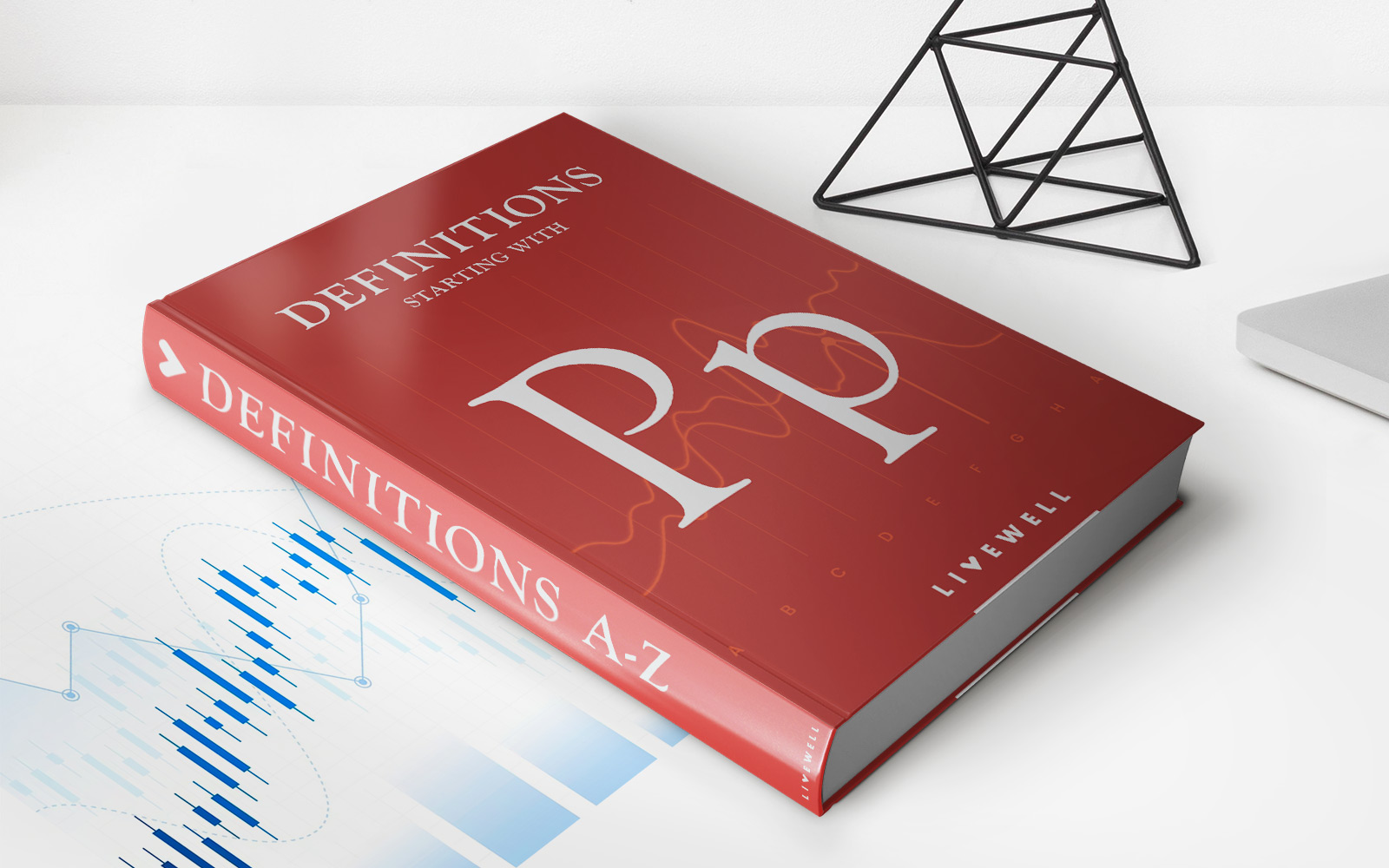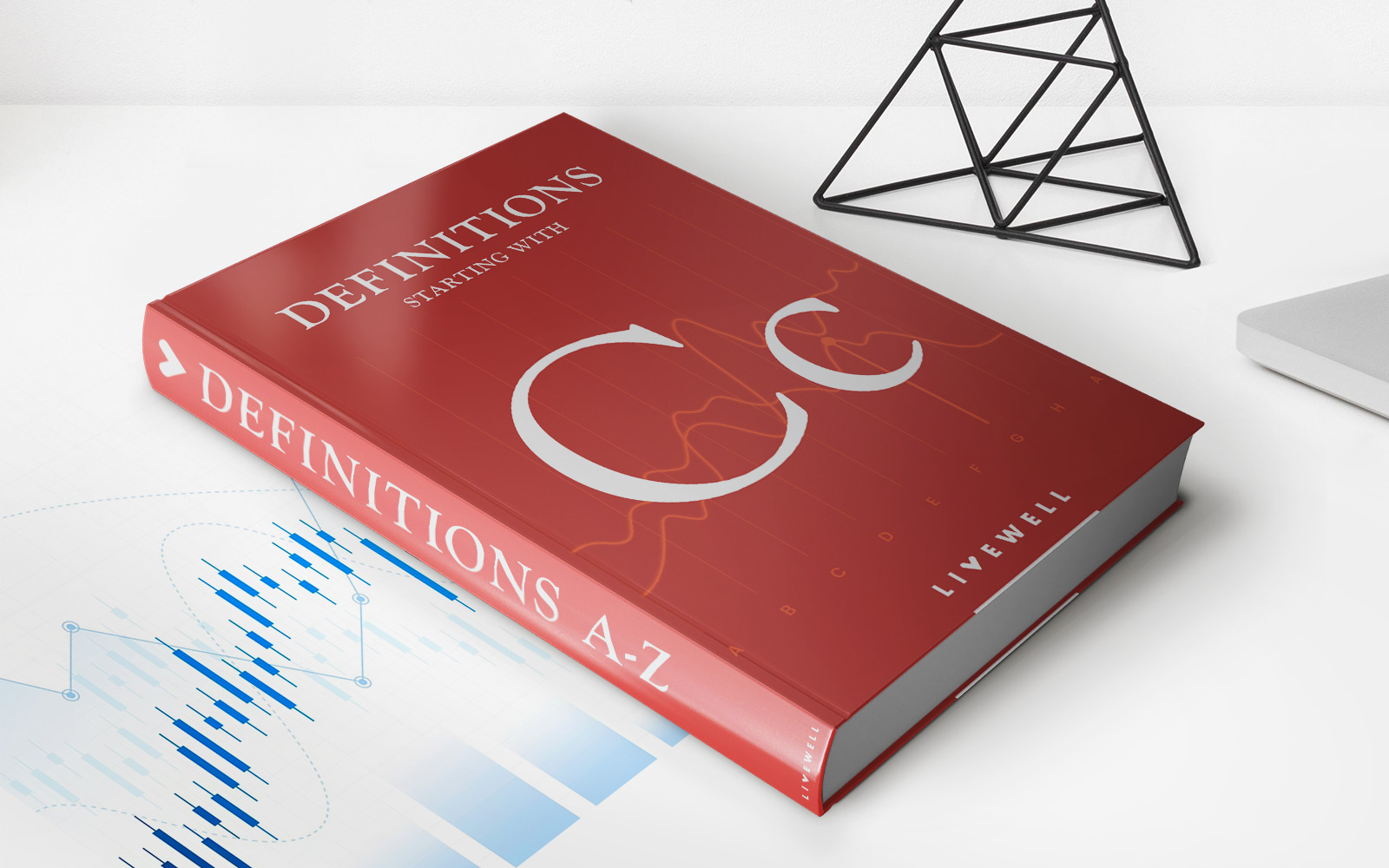

Finance
How Much Does Estate Planning Cost?
Published: January 3, 2024
Discover the average cost of estate planning and how it can fit into your finance goals. Find out the expenses involved and plan your financial future wisely.
(Many of the links in this article redirect to a specific reviewed product. Your purchase of these products through affiliate links helps to generate commission for LiveWell, at no extra cost. Learn more)
Table of Contents
Introduction
Estate planning is an essential process that involves organizing and managing your assets to ensure their proper distribution after your passing. It allows you to have control over how your wealth is distributed, who will manage your affairs, and how your loved ones will be taken care of. While estate planning is crucial, many people often wonder about the cost involved.
In this article, we will delve into the factors that affect estate planning costs and provide insights into the common estate planning services and their associated expenses. By understanding these factors, you can make informed decisions when embarking on your estate planning journey.
It’s important to note that estate planning costs can vary significantly depending on various factors, such as the complexity of your estate, the region you reside in, and the specific services you require. Despite this variability, having an estimate of the costs involved can give you a better understanding of what to expect.
Whether you have a small estate or a complex one, having a well-thought-out estate plan can provide peace of mind for you and your loved ones. It ensures that your assets are protected, your wishes are honored, and your family’s financial future is secured.
So, let’s explore the factors that can influence estate planning costs and the common services and their associated expenses. By gaining insights into these aspects, you’ll be better equipped to navigate the estate planning process and make informed decisions.
Factors Affecting Estate Planning Costs
Several factors determine the cost of estate planning, including the complexity of your estate, the type of estate planning services you require, and the professional fees charged by estate planning attorneys or financial advisors. Let’s take a closer look at these factors:
- Estate Size and Complexity: The size and complexity of your estate can significantly impact the cost of estate planning. A larger estate with multiple assets, business interests, and intricate distribution plans may require more time and resources to develop an effective estate plan, thus increasing the overall cost.
- Type of Services: The specific estate planning services you require will also influence the overall cost. Common estate planning services include drafting a will, establishing trusts, creating powers of attorney, setting up healthcare directives, and developing strategies for estate tax planning. The complexity and intricacy of these services will determine their cost.
- Experience and Reputation of Professionals: The credentials, experience, and reputation of the estate planning professionals you choose can impact the cost. Highly experienced estate planning attorneys or financial advisors may charge higher fees due to their expertise and track record of success.
- Geographical Location: The cost of estate planning can also vary depending on the geographical location. Attorneys and financial advisors in certain regions may have higher fees compared to others. It is important to consider the local market rates when estimating your estate planning costs.
- Complex Legal Situations: If your estate involves complex legal situations, such as blended families, international assets, or disputes among potential heirs, the estate planning process may require additional legal expertise and time, which can increase the overall cost.
- Additional Services: In some cases, additional services may be necessary, such as business succession planning, charitable giving strategies, or asset protection planning. These services can add to the overall cost of estate planning.
It is essential to discuss your estate planning needs and goals with a qualified professional who can assess your specific situation and provide you with a clearer estimate of the costs involved. Understanding these factors can help you anticipate the expenses associated with estate planning and plan your budget accordingly.
Common Estate Planning Services and Their Costs
Estate planning involves a range of services, each with its own associated costs. Understanding these services and their typical costs can help you better prepare for the expenses involved. Here are some common estate planning services and their cost ranges:
- Simple Will: A simple will outlines how you want your assets to be distributed after your passing. The cost of preparing a simple will can range from $200 to $1,000, depending on the complexity of your estate and the experience of the attorney.
- Trusts: Trusts provide a means of managing and distributing assets while minimizing taxes and avoiding probate. The cost of setting up a trust varies depending on its complexity, but it typically ranges from $1,000 to $3,000 or more.
- Power of Attorney: A power of attorney grants someone the authority to make financial decisions on your behalf in the event of your incapacity. The cost of drafting a power of attorney document can range from $100 to $500.
- Healthcare Directive: A healthcare directive, also known as a living will, outlines your wishes for medical treatment in the event that you are unable to communicate. The cost of creating a healthcare directive can range from $100 to $500.
- Guardianship Designation: If you have minor children, designating a guardian is crucial. The cost of creating a guardianship designation can range from $100 to $500, depending on the complexity of your wishes.
- Special Needs Planning: If you have a loved one with special needs, special needs planning can ensure their financial and care needs are met. The cost of special needs planning can vary significantly depending on the complexities involved and can range from $1,000 to $5,000 or more.
- Estate Tax Planning: Estate tax planning involves strategies to minimize estate taxes and maximize the inheritance for your beneficiaries. The cost of estate tax planning depends on the complexity of your situation and can range from $2,000 to $10,000 or more.
These cost ranges are provided as general estimates, and actual costs may vary depending on factors such as the region you reside in and the experience of the professional you engage with. It is important to consult with an estate planning attorney or financial advisor to get an accurate understanding of the costs associated with your specific needs.
Remember, the investment you make in estate planning ensures that your wishes are carried out effectively and can potentially save your loved ones from legal complexities and financial hardships in the future.
Simple Will
A simple will is one of the most basic estate planning documents that outlines how you want your assets to be distributed after your passing. While a simple will may be appropriate for individuals with relatively uncomplicated estates, it is still an important component of any estate plan. Let’s explore the details and costs associated with a simple will:
A simple will typically includes the following key elements:
- Asset Distribution: A simple will specifies how you want your assets, such as property, bank accounts, and personal belongings, to be distributed among your beneficiaries after your passing. This can include family members, friends, or charitable organizations.
- Naming an Executor: In your simple will, you can name an executor who will be responsible for carrying out the instructions stated in your will. The executor is in charge of managing the estate, paying off debts, and distributing assets according to your wishes.
- Guardianship of Minor Children: If you have minor children, a simple will allows you to designate a guardian who will care for them in the event of your passing. This ensures that your children are taken care of by someone you trust and can provide for their well-being.
- Funeral and Burial Wishes: Your simple will can also include your preferences for funeral arrangements and burial or cremation, providing guidance to your loved ones during an emotional and difficult time.
The cost of a simple will can vary depending on factors such as the complexity of your estate and the experience of the attorney you engage with. On average, the cost of preparing a simple will can range from $200 to $1,000. It is advisable to consult with an estate planning attorney to ensure that your will accurately reflects your wishes and complies with the legal requirements of your jurisdiction.
Remember, a simple will is just the starting point of estate planning. As your estate and circumstances become more complex, additional estate planning tools and strategies may be necessary to ensure comprehensive protection and distribution of your assets. Consulting with a qualified professional can help you evaluate your needs and determine the best approach for your specific situation.
Trusts
A trust is a legal arrangement that allows you to transfer assets (such as property, investments, or cash) to a trustee, who manages and distributes them to beneficiaries according to your specified instructions. Trusts offer several benefits, including asset protection, avoiding probate, and ensuring a smooth transfer of assets. Let’s explore the details and costs associated with establishing trusts:
There are different types of trusts available, each serving specific purposes. Some common types of trusts include:
- Revocable Living Trust: A revocable living trust allows you to retain control over your assets during your lifetime and facilitates the seamless transfer of these assets to your beneficiaries after your passing. This type of trust can be modified or revoked as long as you are mentally competent.
- Irrevocable Trust: An irrevocable trust cannot be modified or revoked once it’s established. It offers greater asset protection and can help minimize estate taxes. Once you transfer assets into an irrevocable trust, they are no longer considered part of your estate.
- Spendthrift Trust: A spendthrift trust is designed to protect the assets you leave to a beneficiary from creditors and potential squandering. The trust controls the distribution of funds based on specific instructions, providing financial security for the beneficiary.
- Special Needs Trust: A special needs trust allows you to provide for a loved one with special needs without jeopardizing their eligibility for government assistance programs. The trust ensures that the funds are managed and utilized to enhance the beneficiary’s quality of life.
The cost of establishing a trust can vary depending on its complexity, the assets involved, and the experience of the attorney assisting you. On average, a trust can cost between $1,000 and $3,000 or more. The fees typically cover the drafting and preparation of the trust document, as well as any necessary conveyance of assets into the trust.
It’s important to note that along with the initial establishment costs, there may be ongoing administrative costs associated with managing a trust, including trustee fees, investment management fees, and accounting fees. These costs may vary depending on the complexity of the trust and the services provided by the professionals involved.
Consulting with an experienced estate planning attorney can help you determine the most suitable type of trust for your specific needs and goals. They can also guide you through the process of establishing and funding the trust to ensure that your assets are protected and distributed according to your wishes.
Power of Attorney
A power of attorney is a legal document that grants someone else the authority to make financial and legal decisions on your behalf. This document is particularly crucial if you become incapacitated or unable to manage your affairs. Let’s explore the details and costs associated with establishing a power of attorney:
There are various types of powers of attorney, each serving a specific purpose:
- General Power of Attorney: A general power of attorney grants someone the broad authority to handle your financial and legal matters. This includes managing bank accounts, paying bills, and making investment decisions. It is important to choose someone you trust implicitly, as they will have significant control over your finances.
- Limited or Special Power of Attorney: A limited or special power of attorney grants someone specific powers and authority over certain matters, such as selling a property on your behalf or making medical decisions while you are temporarily unavailable.
- Durable Power of Attorney: A durable power of attorney remains in effect even if you become incapacitated or unable to make decisions. It ensures that your chosen agent can continue to act on your behalf and manage your financial and legal affairs.
- Springing Power of Attorney: A springing power of attorney only goes into effect when a specific event or condition occurs, typically your incapacity. It provides a safeguard and ensures that your chosen agent can act on your behalf during times of need.
The cost of establishing a power of attorney can vary depending on factors such as the complexity of your financial and legal affairs and the expertise of the attorney involved. On average, the cost of drafting and preparing a power of attorney can range from $100 to $500.
It is important to work with an experienced attorney who can guide you through the process and ensure that all necessary details are considered. They can help you choose the most appropriate type of power of attorney, determine the scope of powers granted, and advise you on selecting a trusted agent to act on your behalf.
Keep in mind that a power of attorney is a powerful legal document, and the person you choose to act as your agent should be reliable, trustworthy, and capable of managing your affairs in your best interests. Regularly reviewing and updating your power of attorney as your circumstances change is also important to ensure its effectiveness.
Consulting with an attorney can provide you with the necessary guidance and peace of mind, knowing that your affairs will be properly managed in the event of your incapacity or unavailability.
Healthcare Directive
A healthcare directive, also known as a living will or advance healthcare directive, is a legal document that communicates your wishes regarding medical treatment in the event that you are unable to make decisions for yourself. It ensures that your healthcare preferences are respected and followed. Let’s explore the details and costs associated with creating a healthcare directive:
A healthcare directive typically includes the following elements:
- Medical Treatment Preferences: A healthcare directive allows you to specify the types of medical treatments you would like to receive or refuse in certain situations. This can include preferences for life-sustaining measures, resuscitation, pain management, and organ donation.
- End-of-Life Care: You can outline your desires for end-of-life care, such as whether you want to receive palliative care or be placed on life support if there is no reasonable chance of recovery. This ensures that your wishes are honored and reduces the burden on your loved ones.
- Appointment of a Healthcare Proxy: A healthcare directive allows you to appoint a trusted individual, known as a healthcare proxy or surrogate, to make medical decisions on your behalf if you are unable to do so. This person will advocate for your wishes and ensure that your healthcare directives are followed.
- Organ and Tissue Donation: If you wish to donate your organs or tissues after your passing, you can specify your preferences in your healthcare directive. This ensures that your desire to help others through donation is carried out.
The cost of creating a healthcare directive can vary depending on factors such as the complexity of your instructions, the state you reside in, and the legal fees charged by the attorney assisting you. On average, the cost of drafting and preparing a healthcare directive can range from $100 to $500.
Consulting with an experienced estate planning attorney or healthcare professional can help ensure that your healthcare directive accurately reflects your wishes and complies with the legal requirements of your jurisdiction. They can guide you through the process, answer any questions you may have, and advise you on the best approach for your specific needs.
It is important to periodically review and update your healthcare directive to reflect any changes in your medical condition or preferences. Communicating your healthcare wishes to your loved ones and healthcare providers ensures that your desires are known and respected, providing you with peace of mind and relieving your family of the burden of making difficult decisions on your behalf.
Guardianship Designation
Designating a guardian for your minor children is a crucial aspect of estate planning. A guardianship designation ensures that someone you trust will care for and make decisions regarding the upbringing of your children in the event of your passing. Let’s explore the details and costs associated with establishing a guardianship designation:
When creating a guardianship designation, consider the following key elements:
- Choosing a Guardian: Selecting a guardian is a deeply personal decision. Consider individuals who share your values, beliefs, and parenting style. It’s important to discuss this responsibility with the potential guardian to ensure their willingness to assume the role.
- Legal Documentation: To establish a guardianship designation, you will need to create legal documentation outlining your wishes. This may involve working with an estate planning attorney to draft the necessary documents.
- Considerations for the Well-being of Your Children: Provide specific instructions on how you would like your children to be raised, including religious or educational preferences and other important considerations. Discuss these wishes with the potential guardian to ensure alignment.
- Regular Updates: Review and update your guardianship designation periodically. As circumstances change, you may need to reassess your choices and make any necessary adjustments.
The cost of establishing a guardianship designation can vary depending on factors such as the complexity of your wishes, the involvement of an attorney, and any additional legal services required. On average, the cost can range from $100 to $500.
While it is possible to create a guardianship designation on your own, consulting with an experienced estate planning attorney can provide valuable guidance and ensure that your wishes are legally documented and properly executed. They can help you navigate the process and address any legal considerations specific to your jurisdiction.
Additionally, it is important to communicate your choice of guardian to the intended individual and other family members involved. Discussing your wishes openly can provide clarity and reduce potential conflicts or misunderstandings in the future.
By establishing a guardianship designation, you can provide your children with stability and ensure that their well-being is protected even in unforeseen circumstances. Taking this important step as part of your estate planning process offers peace of mind and the assurance that your children will be cared for by someone you trust.
Special Needs Planning
Special needs planning is a crucial aspect of estate planning for individuals who have a loved one with special needs. It involves creating a comprehensive strategy to ensure the ongoing care and financial security of the individual with special needs. Let’s explore the details and costs associated with special needs planning:
Special needs planning encompasses several key elements:
- Understanding Government Benefits: It is crucial to understand the government benefits available to individuals with special needs, such as Supplemental Security Income (SSI) and Medicaid. Special needs planning aims to preserve these benefits while supplementing them with additional resources.
- Establishing a Special Needs Trust: A special needs trust allows you to set aside assets for the benefit of the individual with special needs without interfering with their eligibility for government benefits. It ensures that these assets are managed and utilized to enhance their quality of life.
- Appointing a Trustee: Selecting a trustee who is knowledgeable about special needs planning and understands the unique needs of the individual is essential. The trustee is responsible for managing the trust funds and making distributions to support the individual’s needs without jeopardizing their benefits.
- Coordinating Professional Services: Special needs planning often involves coordination with other professionals, such as financial advisors, social workers, and healthcare providers. These professionals can provide guidance on financial management, government benefits, and available support services.
- Continual Review and Updates: Special needs planning is an ongoing process. It is important to review and update the plan as circumstances change, ensuring that the individual with special needs continues to receive the necessary care and support.
The cost of special needs planning can vary depending on factors such as the complexity of the individual’s needs, the involvement of professionals, and the establishment of a special needs trust. On average, the cost can range from $1,000 to $5,000 or more, depending on the specific requirements and services involved.
Working with an experienced estate planning attorney who specializes in special needs planning is highly recommended. They can assess your unique situation, guide you through the process, and ensure that your loved one with special needs is properly protected and provided for.
Remember, special needs planning offers peace of mind, knowing that your loved one’s financial future and care needs are safeguarded. By taking proactive steps to address their unique circumstances, you can provide long-term support and enhance their overall quality of life.
Estate Tax Planning
Estate tax planning is a crucial aspect of estate planning for individuals with a larger estate. It involves implementing strategies to minimize estate taxes and maximize the amount of your assets that can be passed on to your beneficiaries. Let’s explore the details and costs associated with estate tax planning:
Estate tax planning encompasses several key elements:
- Understanding Estate Tax Laws: It’s important to have a comprehensive understanding of the current estate tax laws in your jurisdiction. Estate tax laws can change over time, so staying informed about any updates or revisions is crucial in creating an effective tax planning strategy.
- Asset Valuation: Accurate valuation of your assets is essential in determining the potential estate tax liability. This includes assessing the value of real estate, investments, business interests, and other assets that may be subject to estate taxes.
- Lifetime Gifting: Gifting assets during your lifetime can help reduce the overall value of your estate and, consequently, the potential estate tax liability. This may involve making annual exclusion gifts, utilizing the lifetime gift tax exemption, or establishing a trust for gifting purposes.
- Charitable Giving: Charitable giving can provide both philanthropic benefits and potential estate tax advantages. By donating a portion of your estate to qualified charitable organizations, you can reduce the taxable value of your estate and leave a lasting legacy.
- Irrevocable Life Insurance Trust: An irrevocable life insurance trust (ILIT) can remove the value of life insurance policies from your taxable estate, providing liquidity for your heirs while minimizing estate tax consequences.
- Strategic Trust Planning: Establishing various types of trusts, such as bypass trusts or qualified personal residence trusts (QPRT), can provide additional tax planning benefits. These trusts allow for the transfer of assets out of your taxable estate while still providing for your loved ones.
The cost of estate tax planning can vary significantly depending on factors such as the complexity of your estate, the strategies implemented, and the involvement of professionals such as estate planning attorneys, accountants, and financial advisors. On average, the cost for estate tax planning can range from $2,000 to $10,000 or more, depending on the specific requirements and services involved.
Working with experienced professionals who specialize in estate tax planning is recommended to ensure the effectiveness and legality of your strategies. They can assess your specific situation, provide tailored guidance, and help you navigate the complexities of estate tax laws.
Estate tax planning is an important aspect of preserving your wealth and ensuring a smooth transfer of assets to your beneficiaries. By taking proactive measures to minimize estate taxes, you can leave a greater legacy and provide for your loved ones without unnecessary tax burdens.
Additional Considerations for Estate Planning Costs
While we have explored the common estate planning services and their associated costs, it is essential to consider some additional factors that can impact the overall cost of estate planning. These factors include:
- Complexity of Legal Situations: If your estate involves complex legal situations, such as blended families, international assets, or disputes among potential heirs, the estate planning process may require additional legal expertise and time. This can result in higher professional fees.
- Geographical Location: The cost of estate planning can vary depending on where you reside. Attorneys and financial advisors in certain regions may have higher fees compared to others. It is important to consider the local market rates when estimating your estate planning costs.
- Experience and Reputation of Professionals: The experience, credentials, and reputation of the estate planning professionals you engage with can impact the cost. Highly experienced attorneys or financial advisors may charge higher fees due to their expertise and track record of success.
- Additional Services: Depending on your unique circumstances and estate planning goals, there may be additional services you require, such as business succession planning, charitable giving strategies, or asset protection planning. These services can add to the overall cost of estate planning.
- Ongoing Maintenance: Estate plans should be regularly reviewed and updated to reflect changes in personal circumstances, tax laws, or family dynamics. Ongoing maintenance can involve additional costs, such as updating documents, amending trusts, or revising beneficiary designations.
- Professional Fees: It is important to consider the professional fees associated with estate planning. Attorneys, financial advisors, and other professionals typically charge fees for their services. These fees can vary depending on factors such as their expertise, the complexity of your estate, and the region in which they operate.
It is crucial to have open and transparent communication with the professionals assisting you with estate planning. Discussing your budget, expectations, and specific needs can help ensure a transparent fee structure and prevent any surprises when it comes to costs.
Remember, estate planning is an investment in your future and the well-being of your loved ones. While costs can vary, the value of having a comprehensive estate plan that protects your assets, honors your wishes, and minimizes potential conflicts or legal issues far outweighs the financial expenditure.
Consulting with qualified professionals who specialize in estate planning can provide the guidance and expertise needed to navigate the complexities of the process and ensure that your estate plan is tailored to your specific needs.
Conclusion
Estate planning is a crucial process that allows you to protect and manage your assets, ensure the well-being of your loved ones, and leave a lasting legacy. While the costs associated with estate planning may vary depending on factors such as the complexity of your estate, the specific services required, and the professionals involved, it is important to view it as an investment in your future and the financial security of your family.
By understanding the factors that affect estate planning costs and being aware of the common services and their associated expenses, you can better prepare for the financial aspects of the process. From creating a simple will and establishing trusts to designating a guardian for minor children, executing a power of attorney, and planning for special needs or estate taxes, each element of estate planning serves a unique purpose in protecting your assets and ensuring your wishes are upheld.
When engaging with estate planning professionals, consider their experience, reputation, and fees. Transparency and open communication about your budget and expectations can help establish a clear understanding of the costs involved.
Remember, estate planning is not a one-time event. As your circumstances change, it is essential to review and update your plan regularly, ensuring its effectiveness and relevance over time.
By proactively engaging in estate planning, you can provide peace of mind for yourself and your loved ones, knowing that your assets will be distributed according to your wishes and your family’s financial future will be secure. Consult with qualified estate planning attorneys and financial advisors to create a comprehensive plan tailored to your specific needs and goals.
Investing in estate planning today means securing a better tomorrow for yourself and your loved ones, ensuring that your legacy is carried forward as you intended.














